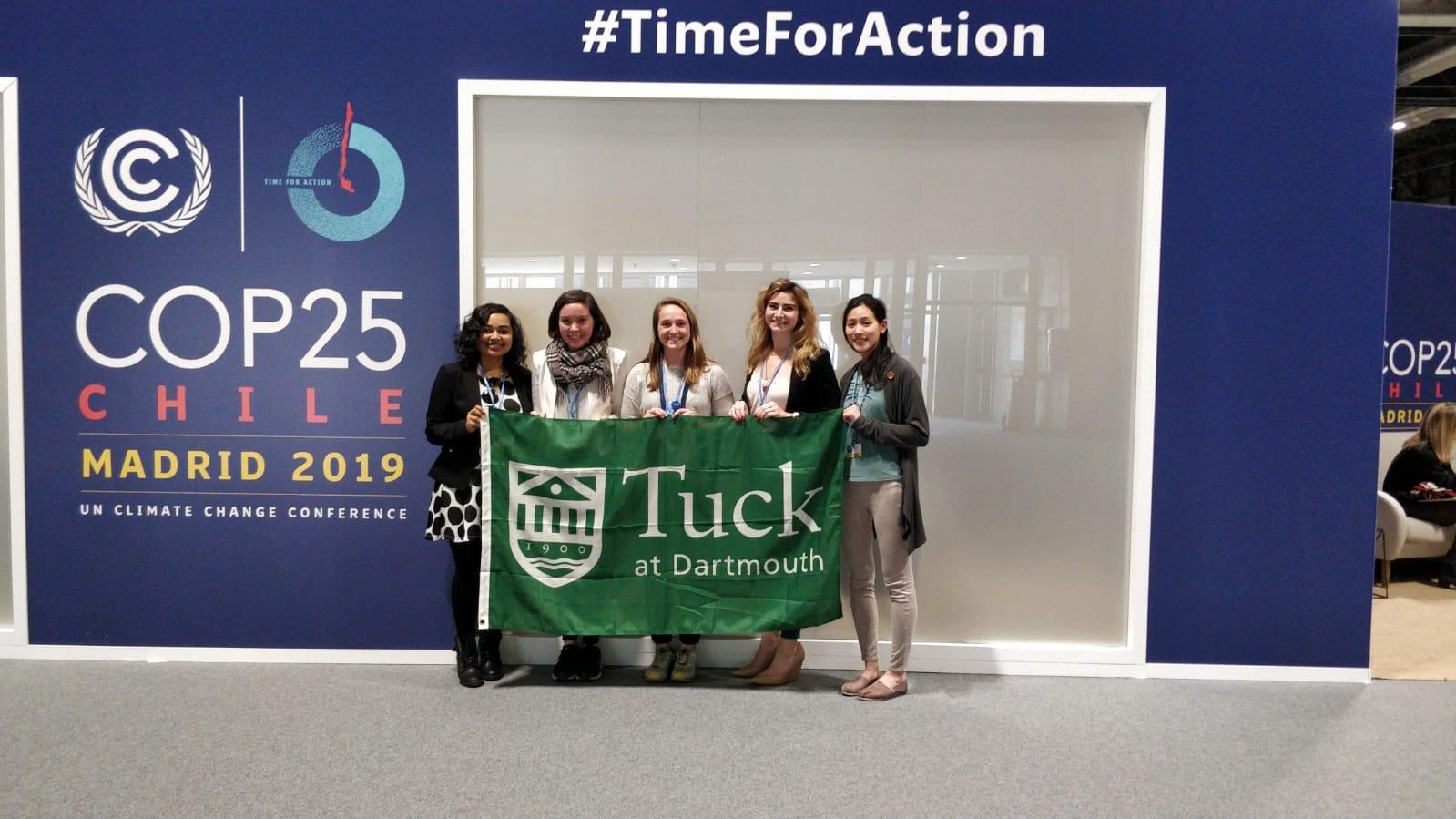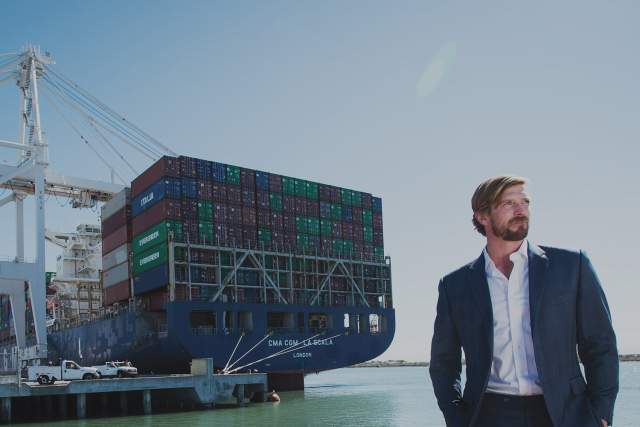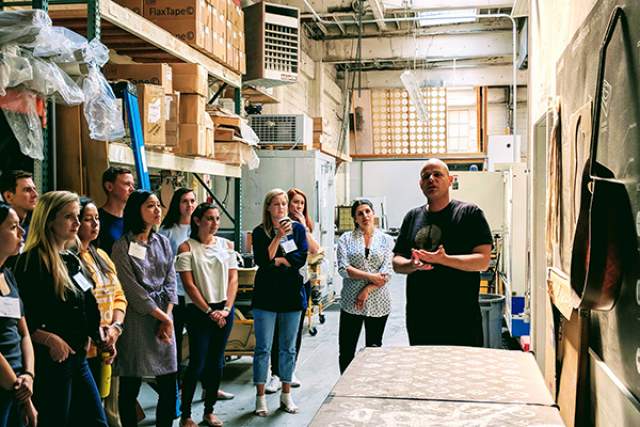As world leaders and activists continue to urge immediate action on climate change, Tuck students recently got the chance to show their commitment to helping solve one of the central issues of our time.
Last month, 10 Tuckies attended the COP25 conference in Madrid, an annual conference hosted by the United Nations designed to reach a global agreement to address climate change.
“Corporations have both a role and an opportunity to lead in the areas of corporate sustainability, ESG, and lowering their carbon emissions,” says April Salas, executive director of Tuck’s Revers Center for Energy, endowed in 2016 to inspire and shape tomorrow’s leaders in energy. “COP provides a unique lens on where policy, market formation, and corporations intersect, and I’m thrilled our students had the opportunity to witness this intersection firsthand.”
As in many previous years, Tuck sent a student delegation to COP25, also known as the Conference of Parties, which gives Tuck students an up-close look at climate change negotiations.
“It was very energizing to see all these young people committed to finding solutions to climate change and an amazing experience to see the negotiators working live on behalf of their countries and hearing what’s important to them,” said Melina Sanchez Montanes T’20, a director of the Tuck Social Venture Fund, who worked in impact investing in Israel last summer with Impact First Investments.
Montanes, who is pursuing a dual MBA/MPA with Tuck and the John F. Kennedy School of Government at Harvard University, said she came away from the conference with the realization that more investment is sorely needed. “There needs to be more blended finance and more contribution from the private sector,” she said. “No one has committed enough to move the needle.”

Part of the Tuck student delegation in Madrid.
Montanes and her fellow students traveled to COP25 with professor Tracy Bach, a law professor and subject matter expert on climate change negotiations. Bach held workshops for Tuckies before the conference to prepare them and, while there, introduced students to delegates from Myanmar, whom Bach was advising directly at the conference. Students who attended COP took what they learned from world delegates and returned to Hanover eager to share their observations.
Thanks to Tuck’s Revers Center for Energy and the Center for Business, Government & Society, COP25 is one of many experiential opportunities that students have access to as they explore energy, climate change, and sustainability. Academically, students can enroll in an elective course devoted solely to the business of climate change or register for a second-year elective called Leadership in the Global Economy (LGE), which gives them a chance to apply lessons from the first-year core curriculum to contemporary business issues, such as climate change.
In addition, students regularly participate in immersive learning experiences off campus. The environmental and social governance (ESG) investing deep dive, for example, brings students to New York City where they visit BlackRock and the first architect of the green bond. During the energy GIX in Morocco—host to COP22 and home to the world’s largest concentrated solar farm—students have the opportunity to see the direct impact of climate and clean energy investment decisions firsthand. Students also lead and participate in campus speaker series and events around timely issues, and have the opportunity to design their own independent studies around social issues.
The climate crisis can seem like this huge problem, where we don’t even know where to start, and it can feel defeating and deafening. But if you find your sliver of the pie and give it everything you can give, the world will be in a better place.
“It is important for us to provide unique, hands-on learning opportunities for students to experience the full value chain of sustainability and clean energy investment decisions,” says Salas. “Many of the challenges our students will face as business leaders involve policy and regulatory decisions made at the nation state level.”
In turn when Tuck alumni graduate and head out into the world, they are equipped with the knowledge and experience to work in sustainability and tackle some of climate change’s biggest challenges, whether by working for an energy startup or consulting in the field.
Kevin Yuan T’20, who also attended COP25, plans to work at Nike as the company’s global manager of sustainability when he graduates this year. In doing so, he will take on plenty of climate-related projects, such as looking for ways to offset the company’s carbon footprint. The West Coast native got his foot in the door with Nike when the sportswear company presented on a panel at a previous COP conference held in Poland.
“The opportunity to attend COP was always high on my radar,” said Yuan, a Revers Center for Energy student fellow who believes that the COP conferences are a great chance to meet the “who’s who” in sustainability. Prior to arriving at Tuck, Yuan worked at Chevron in California and Texas as a senior project engineer, focusing on upstream exploration and production, but now with Nike he has the chance to achieve his career goals and pivot directly into sustainability.
“As the world’s largest apparel company, Nike is a bellwether, and I feel uniquely empowered to impact climate change because of Nike’s global presence,” Yuan said. “The climate crisis can seem like this huge problem, where we don’t even know where to start, and it can feel defeating and deafening. But if you find your sliver of the pie and give it everything you can give, the world will be in a better place.”

